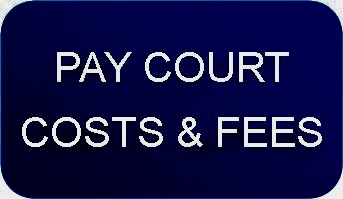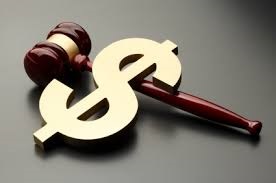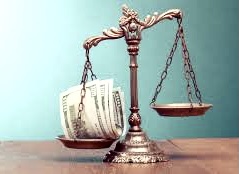
Re Derco Estate 2023 BCSC 1622 involved the assessment of special costs for a two day passing of accounts hearing
The following is an excerpt of the principles of law used by the court in the assessment of the parties special costs:
[14] Part 25 of the Supreme Court Civil Rules, B.C. Reg. 168/2009 [SCCR], governs estate proceedings. Rule 25-13(1) provides that a personal representative may apply for an order for the passing of the personal representative’s accounts, which Miles did in November 2021. Rule 25-13(7) expressly provides that unless the court on an application otherwise orders, if costs are payable under an application for the passing of accounts, those costs must be assessed as special costs and that Rules 14-1(3) and (5) of the SCCR apply.
[15] Rule 14-1(3) stipulates that on an assessment of special costs, a registrar must allow those fees that were “proper or reasonably necessary to conduct the proceeding”, which requires the registrar to consider all of the circumstances of the case, including the following factors listed in R. 14-1(3)(b)(i) through (viii):
(i) the complexity of the proceeding and the difficulty or the novelty of the issues involved;
(ii) the skill, specialized knowledge and responsibility required of the lawyer;
(iii) the amount involved in the proceeding;
(iv) the time reasonably spent in conducting the proceeding;
(v) the conduct of any party that tended to shorten, or to unnecessarily lengthen, the duration of the proceeding;
(vi) the importance of the proceeding to the party whose bill is being assessed, and the result obtained;
(vii) the benefit to the party whose bill is being assessed of the services rendered by the lawyer;
(viii) Rule 1-3 and any case plan order.
[16] Rule 1-3 establishes that the object of the SCCR is to secure the just, speedy and inexpensive determination of every proceeding on its merits, which includes, so far as is practicable, conducting the proceeding in ways that are proportionate to the amount involved, the importance of the issues in dispute, and the complexity of the proceeding.
[17] In Gichuru v. Smith, 2014 BCCA 414 [Gichuru], at para. 155, the Court of Appeal noted that when assessing special costs, the assessor “must only allow those fees that are objectively reasonable in the circumstances …. the purpose of a special costs award is to provide an indemnity to the successful party, not a windfall.” In order to determine if a legal fee is reasonably objective, “it is often necessary to know the particulars of what the lawyer did to accrue it … the fact that a lawyer has billed a certain sum does not necessarily make the fee reasonable” (Gichuru, paras. 104-105). An assessment of special costs must be guided by some evidence to permit an objective assessment of a reasonable fee: Gichuru, para. 156.
[18] The assessment of special costs is objective, as opposed to the subjective review of a lawyer’s bill conducted under the Legal Profession Act, S.B.C. 1998, c. 9. In Bradshaw Construction Ltd. v. Bank of Nova Scotia, 1991 CanLII 4019 (BC SC), 54 B.C.L.R. (2d) 309 [Bradshaw], [aff’d 1992 CanLII 4038 (BC CA)], Justice Bouck noted at p. 319 that special costs “are not necessarily the fees that the successful solicitor would recover from his or her client … [but] are the fees that a reasonable client would pay a reasonably competent solicitor for performing the work described in the bill.”
[19] Rule 14-1(5) provides that a registrar must determine which disbursements have been necessarily or properly incurred in the conduct of the proceeding, and must allow a reasonable amount for those disbursements. The authorities establish that whether a disbursement was necessarily or properly incurred is case and circumstance specific and must include consideration of proportionality under R. 1-3 (see, for example, Brown v. Goodacre, 2019 BCSC 1008, para. 30, citing Turner v. Whittaker, 2013 BCSC 712 at para. 5). These authorities also confirm that the time for assessing whether a disbursement was necessarily or properly incurred is when the disbursement was incurred, without the benefit of hindsight.
[20] The law is clear that special costs may be awarded to a self-represented litigant; however, there is a lack of clarity in the authorities regarding how special costs for self-represented litigants should be calculated: Neural Capital GP, LLC v. 1156062 B.C. Ltd., 2022 BCSC 1800 [Neural Capital], at para. 75; see also K.L.M. v. L.K.M., 2023 BCSC 1414, at para. 41. The authorities regarding the calculation of a self-represented litigant’s special costs are discussed further in the assessment of the special costs Miles claims.
[21] Rule 25-13(7) expressly provides that if costs are payable under an application for the passing of accounts, those costs must be assessed as special costs, unless the court otherwise orders. This rule codifies the general principle that in estate litigation, courts award special costs to executors payable out of the estate, recognizing that executors are entitled to be indemnified for the costs that they properly and reasonably incur while acting within the ambit of their fiduciary duties (see, for example, Mawdsley v. Meshen, 2011 BCSC 923, at para. 39).
[22] In recent jurisprudence, the Court of Appeal has concluded that there is no general rule that a party is entitled to special costs of an assessment of those costs, unless the judge orders special costs are awarded “of a proceeding”, which encompasses the assessment: 567 Hornby Apartment Ltd. v. Le Soleil Restaurant Inc., 2020 BCCA 69 [Le Soleil], paras. 137-141.




